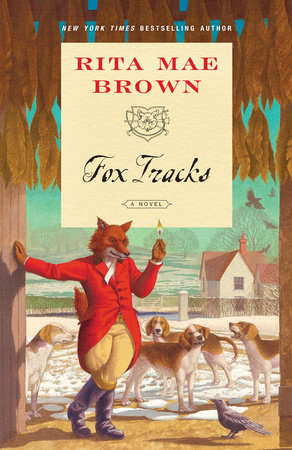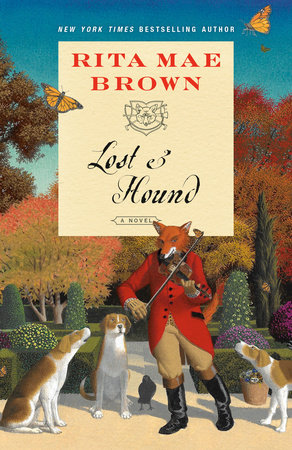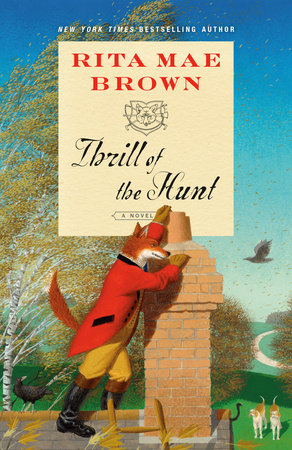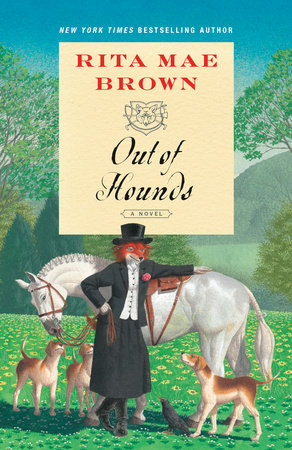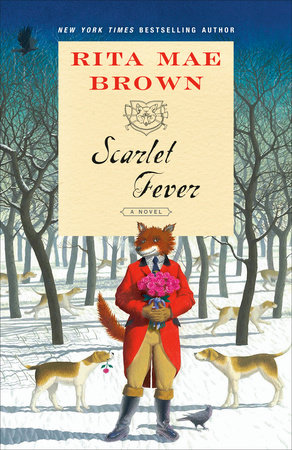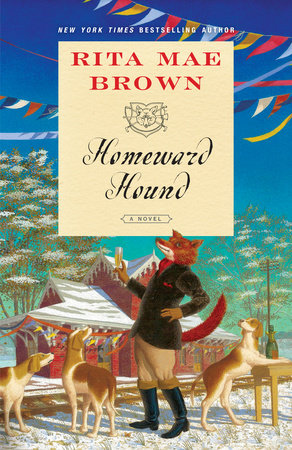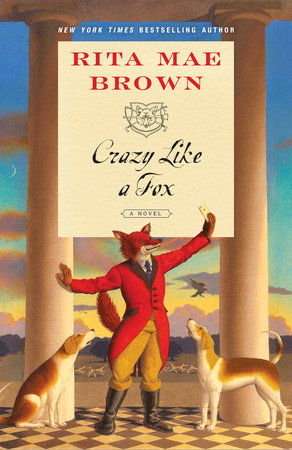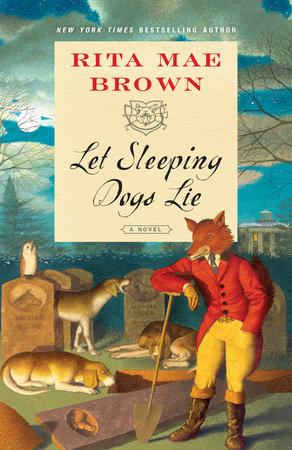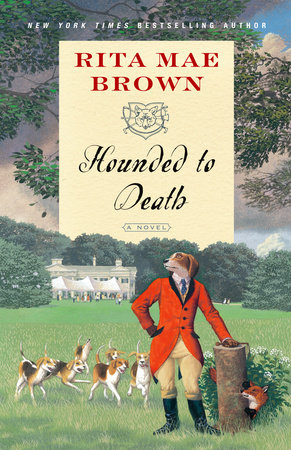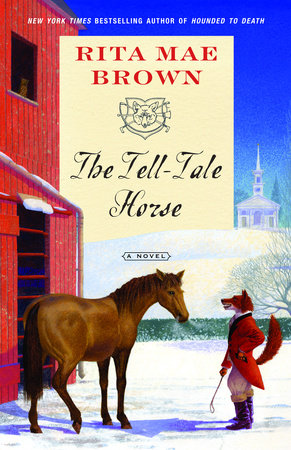Excerpt
Fox Tracks
CHAPTER 1
Brilliant strings of moving rubies rolled away in the snow. At least that’s how it looked to Jane Arnold, “Sister,” as she peered out the window of her hotel room at The Pierre. The taillights of all those cars crawling down Manhattan’s Fifth Avenue sparkled in the dark like rubies. When she was young, she would have seen parallel lines of headlights like diamonds coming toward her as well. Those days were long gone.
“Do you remember when the streets were two-way?” she asked her boyfriend, Gray Lorillard, who was carefully removing items from his Gladstone bag.
“Uh-huh.”
“Do you think creating one-way streets in 1966 really made New York traffic move faster?”
“I do not.” He answered this with conviction, his handsome brow furrowed as he once more reviewed his close items.
“Close” meant small clothing: undershirts, underwear, folded good shirts, and his Dopp kit, as well as a beautiful calfskin jewelry case (although men never called it that).
“I don’t think it helped either,” she said, turning from the view, “but there were fewer cars then.”
“Fewer people,” he mumbled, searching for something in his bag. “Goddammit.”
“Is this male PMS I’m observing?” she asked, half smirking at him.
He rolled his eyes. “Men don’t have mood swings.”
At this, the elegant seventy-one-year-old woman with the incredible silver hair, let out a whoop.
Younger by perhaps seven years—the year of his birth had a habit of sliding backward—Gray, taller than Sister who was six feet, brushed his steel-gray military moustache while looking in the mirror above the desk. “Well, I don’t have them—it’s well known that I’m even-keeled.”
“Honey, you are smoking opium. You’re a lot moodier than I am.”
Looking at the beautiful woman who never made the slightest attempt to look younger than she was—perhaps one of the reasons she was so striking—Gray shrugged. “Janie, we’re all moodier than you. I’ve never known such a cool customer.”
“I don’t know if that’s a compliment or an insult.” She crossed the plush carpet and put her arm around his waist. “What’s the problem here?”
“I’m missing one of my studs.”
“Oh no, the chased gold fox-head ones with the ruby eyes?”
“I know I put it in here. I did. You know how meticulous I am.”
“I do.” She bit her tongue because she wanted to say: And sometimes I wish you were not. “Maybe it slid behind the lining. Your bag has some years on it.”
“Buy the best. Then you only weep once.” He sat on the side of the bed, taking a deep breath. “I am not going to panic.”
She sat beside him. “Neither am I. Those were your Christmas present three years ago. I bought them from Marion at Horse Country.” The proprietor had sneaked Jane the elegant studs when they’d driven up to buy tack for the staff.
As Master of the Jefferson Hunt, Sister, and her joint-master of three years, Dr. Walter Lungrun, were responsible for “the furnishings”—as horse equipment was properly termed—as well as for the paid staff, which consisted of one huntsman and one whipper-in. Newly added to the payroll, Betty Franklin had served as an honorary, which means amateur, whipper-in for decades.
Betty and her husband faced tightened financial conditions thanks to the sinking economy and the fact that they owned a printing press. Few people patronized true presses anymore so after much discussion, Sister and Walter had worked out the necessary details to give Betty a salary of $25,000. The good woman wept at the offer, tried to refuse, but the two masters insisted. That $25,000 kept the wolf from the Franklins’ door.
“Sugar, if you truly have lost it, I will buy you another,” said Jane.
“I didn’t,” he insisted. “It has to be here.”
“Go back over the last time you saw it.”
“Did that.” He rose, kissed her on the cheek, patted his chest pocket. “Dammit.”
“Your language is going to Hell.”
Her cursing as well made them both laugh.
“My mother would wash my mouth out with soap.” He smiled at the memory of the formidable, late LuAnne Lorillard, a power in the African American community long before integration. Nobody messed with LuAnne without ample opportunity to repent later.
“Well, humor me,” said Jane.
“All right. I was back home the last time I saw the studs. I went to my dresser after packing my clothing in this bag. I opened the top drawer, lifted out my personal case, carried it to the safe behind the painting that Daddy did, opened it, and took out my studs. I opened the little green leather case, counted them, closed it, and put it in my Gladstone bag.”
“Why don’t men say jewelry case?” Jane interrupted.
“How many years were you married? As I recall, it was twenty-eight. Did you ever ask Raymond?”
“No, but I didn’t talk to Raymond as openly as I talk to you,” she said.
“Really?” he asked, smiling, liking the compliment.
“Really. I loved him in my fashion, but it was a different time. Ray had a bombastic streak, which meant he had a difficult time dealing with anything that didn’t emanate from him.”
“I lived in D.C. for most of your marriage, but Ray did not strike me as the sensitive or introspective type. How could you stand it?”
“I had a son, remember?” This was said in an upbeat tone. Any memory Sister recalled of her son, who died in a tractor accident in 1974, still brought her happiness.
She loved Raymond, Jr., beyond reason, but then doesn’t every parent feel that way? Jane long ago came to terms with his death at age fourteen, growing determined to live each day with joy. Her son would have wanted that for her, not a lifetime of grieving and anger.
“It’s not that I forget,” Gray quickly replied. “It’s only that I don’t associate you with sorrows. You’re a force of nature.”
“You know, that may be the most wonderful thing you ever said to me. Now back to your studs.”
“That’s the chain of events until now.” His hand went to his left pec again.
“Do I need to buy you a man bra?”
“No.” He laughed. “I’m out of cigarettes.”
“You can’t smoke in hotel rooms anymore, at least not in this town. Actually, Gray, you can’t smoke in public parks, the list goes on. If the mayor sees you smoking, he will assume you are a lowlife, possibly a cheap criminal. It never occurs to these health nuts the damage they do to others.”
“You mean the loss of jobs in our state, North Carolina, and Kentucky? Devastation.”
“That, too, but I was thinking about the people who love laws that inhibit other people’s choices. Is smoking a good thing to do? No. But those sanctimonious rule-makers live rather luxurious lives. They aren’t working on an assembly line or in scorching sun outside. If your job is repetitive and boring or dangerous, sometimes that little hit of nicotine takes the edge off. The people that make the laws go get prescriptions for Prozac, and how does anyone know the long-term effects of all that crap?”
He blinked as he hadn’t heard her that impassioned in months, in fact, not since a person blundered and turned the fox back toward the hounds at a hunt in November. Fortunately, the fox escaped.
Sister and Gray, this January 27, had traveled from central Virginia to attend the Masters’ Ball, an annual extravaganza under the aegis of the Masters of Foxhounds Association of America. For forty years, Sister had attended the annual ball, always at the end of January. She loved to dance, loved to catch up with old friends scattered across the United States and Canada.
Over the last ten years, oftentimes when she spoke to city dwellers or suburbanites about foxhunting, she would notice the concern or distaste in their faces, so she invariably hastened to add that in the New World, foxes were chased, not killed. Usually, that opened up a torrent of quite intelligent questions and Sister would once again be reminded of how far most people lived from nature.
The last thing Jane Arnold ever wanted to do was kill a fox. She wouldn’t mind dispatching a few humans, though, one of whom would be at this very ball. She wondered, could you kill a man with a butter knife?
Gray couldn’t find a cigarette. “I am hooked and that’s that.” He came and sat down again, forlornly gazing into his opened Gladstone bag as though it would croak an answer concerning his stud. “I have stopped many times. Then pressure gets to me and I light up. I hate being controlled by an outside substance.”
“I can’t say that I understand. I don’t have an addictive personality. I wish you could stop if only to suit yourself. However, smoking doesn’t make you crazy, you don’t lose your teeth like those pathetic meth people, and it isn’t illegal. And although you say you aren’t moody, honey, there are times when I would happily shove a cigarette in your chiseled lips.”
“You say.”
“Look, you search for your stud. We have three hours until the Ball. I’ll pop around the corner to Madison Avenue. As I recall, there’s a beautiful little tobacco shop there that sells gorgeous small humidors, cigarette lighters, cases from as early as World War One and, of course, tobacco.”
“It’s snowing out there. I’ll go.”
“Gray, that stud is more important than a little snow on my nose. We hunt in weather worse than this.”
“Yes, but you don’t hunt in high heels.”
“I’ll start a fad. I’ve got my pull-on rain boots. My skirt is wool and my sweater is glorious cashmere. You look on your DROID to make sure the store is still operating and I’ll ring up the girls. They can come along to keep me company.”
The girls were two young women, freshmen at Princeton, who had hunted with Sister while attending an exclusive girls’ school, Custis Hall, in central Virginia. They and quite a few other young women hunted with her for the duration of their secondary school education. Some of the faculty hunted, too, always swearing it made environmental studies more exciting for students.
Within minutes, Sister had rounded up one of the girls, Anne Harris—who was called “Tootie.” Using his phone, Gray verified the store was still in business.
“You can calculate minute by minute the national debt on that thing.” Sister admired his toy, as she thought of it.
“If I do that, I won’t enjoy the Ball.”
As it turned out, none of them enjoyed the Ball for entirely different reasons than the national debt.
CHAPTER 2
A gust of wind sent snow swirling around Sister and Tootie as they walked on a side street toward Madison Avenue.
“I think there have only been about three times in forty years that I’ve come to this Ball and the weather hasn’t been filthy. No wonder they stop hunting in New York State early. Genesee Valley stops when the river freezes, which has to be now.”
Sister was telling Tootie about a hunt founded in 1876 by hard-riding upstate New Yorkers, among them the Wadsworth family, who still led them.
“I’d love to go up there and hunt,” said Tootie. “I can take a train up to Rochester and then rent a car to drive down to the Genesee Valley.” Turning her head from the wind, the snow on her creamy café au lait skin added to her considerable beauty.
“Next year. I’ll come with you. Watching Marion Thorne hunt hounds is always a treat. Then again she has good whippers-in. You know, that’s the hardest position to fill.”
“That’s what you always told us.” Tootie listened closely to everything the older woman had ever told her, as the gorgeous young woman loved hounds, horses, foxes, and Sister, herself.
Another gust of wet snow smacked them right in the face.
“Well, who needs skin abrasion up here?” said Sister. “Just go outside. You’ll get a few layers peeled right off.”
Tootie wrinkled her nose. “Sounds awful.”
“Ah!” Sister stepped faster as the shop came into sight.
“Ladies.” The owner rose from behind the store’s counter when the two swept into the shop. “Welcome.”
“We’re glad to be here.” Sister laughed, brushing off her snow-covered coat.
Adolfo Galdos, balding, pudgy, and sixtyish, smiled broadly. “One must submit to the weather. That’s what my dear papa always said. He never could fathom how people endured this.”
“Cuban?” Sister inquired.
“How did you know?”
“I’ve never met a proprietor of a tobacco shop from Barcelona.” She smiled, but she had recognized the lilt in his voice.
“There you have it.” He beamed anew. “For us, tobacco is gold, is art. Someday, and I hope I live to see it, we will return and once again, the finest cigar tobacco in the world will be available to you.”
Tootie quietly studied the shop. Cigarette cases with sapphire clasps, lighters of perfect weight and simple design, sparkled alongside impossibly long cigarette holders.
Adolfo noticed the object of Tootie’s scrutiny. “A Dunhill. 1938. That lighter will work as good as the day it was made.”
Now also studying the display case herself, Sister murmured, “Beautiful. Oh, look at that.”
He reached into the case, retrieving a heavy silver cigarette case with handwritten names incised. “This was given to a British officer by his surviving men.” He flipped it open where it was gold inside, the officer’s name—Cpt. Mitchell Markham—was inscribed therein.
Sister’s hand flew to her heart. “What a tribute. My father fought in World War One. He never spoke of it, but I expect it affected him all his life and may be one of the reasons he married so late.”
“Do we not ask impossible things of people?” Adolfo’s beautiful green eyes met hers. “We left Cuba in 1959. My own father, who owned a tobacco plantation, saw there was no hope and left. Those who grew sugar also fled. Others, thinking the revolutionaries would not come for them, lost everything. Everything.”
“This is called progress.” Sister grimaced. “No one learns. It didn’t work for the French in 1791 and it will never work, period.”
Adolfo spoke to Tootie, delighted by her youth and femininity. “I hope, Señorita, that you will never encounter such foolishness.”
Shyly, Tootie responded, “I hope so, too.”
“Ladies, allow me to show you the humidor. The aroma alone is intoxicating.” He stepped out from behind the counter, twirled one hand like a drum major, walked to the rear of the store and opened a glass door—the fragrance of various cigars, cigarettes, long-cut pipe tobacco, filled the room. “After you.”
The two entered the well-organized room. It was larger than it appeared from outside, looking at the glass door.


